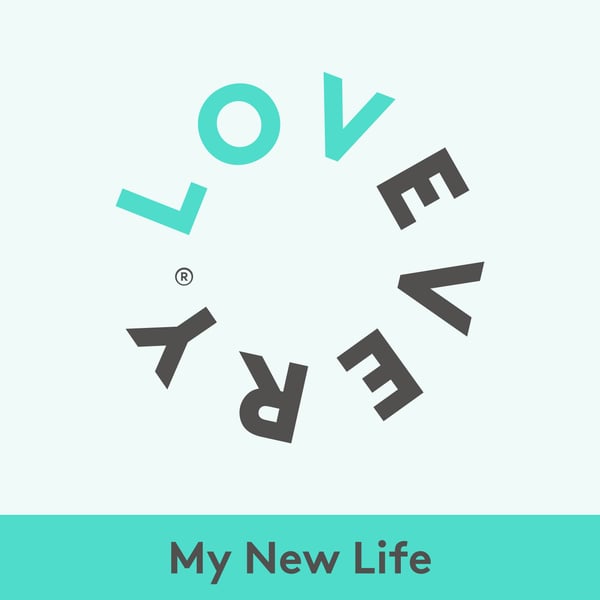Kindergarten ready: You may be closer than you think
My New Life
Kate Garlinge
4.7 • 654 Ratings
🗓️ 3 November 2021
⏱️ 17 minutes
🧾️ Download transcript
Summary
The human brain has about 100 billion nerve cells, all of which are present at birth, but have few links between them. Those links are formed by experiences children have. The idea that the right inputs can strengthen a brain’s architecture informs much of the product design at Lovevery. But there’s lots of debate around how early we should start laying the foundation for academic learning.
Jessica Rolph, your host, welcomes Sarah Chesworth to today’s episode of The Perspective Series, to help us navigate Kindergarten prep in the baby and toddler years. Sarah is a former Kindergarten teacher and early childhood educator.
Key Takeaways:
[1:43] How does Sarah explain the debate between academic and play-based learning for 2 and 3 year olds?
[2:46] Should we be exposing our 2, 3, or 4 year olds to any academic skills?
[3:25] What are some categories of concepts that Sarah feels like children need to have to be ready for Kindergarten?
[4:48] What are some ways that math and spatial understanding can show up in play?
[6:29] Sarah talks about the distinction between healthy brain development in early childhood and the role that academics play.
[9:23] What early number skills might Sarah look for in children entering Kindergarten?
[10:48] What are some ways that parents can build empathy skills?
[12:04] Sarah speaks about the development of fine motor skills.
[13:00 ] Sarah describes the space she created for her daughter and the ways that she’s incorporated play and academics.
[15:01] Sarah extends her advice to parents: Listen, read, play, sing, and snuggle.
Mentioned in this episode:
Brought to you by Lovevery.com
Learn more about Sarah Chesworth
Transcript
Click on a timestamp to play from that location
| 0:00.0 | Parenthood is a time of so much change for you and your baby. |
| 0:13.8 | A little reliable information can go a long way towards making this new life a good life. |
| 0:20.0 | I'm Jessica Rolfe and this is my new life, |
| 0:24.1 | a love every podcast. While the science aligns on what's healthy for a baby's brain development, |
| 0:30.1 | when it comes to how to care for our babies, there's a seemingly endless supply of competing |
| 0:34.9 | perspectives. Parents are swimming in advice on sleep, feeding, |
| 0:39.8 | parenting philosophies. In this season of the podcast, we aim to provide a variety of curated |
| 0:46.1 | perspectives so you can make informed choices for your family. |
| 0:55.4 | How Children's Brain's work is an obsession of mind. |
| 0:59.2 | The human brain has about a hundred billion nerve cells, all of which are present at birth, |
| 1:04.4 | but have few links between them. The brain structure is formed by experiences children have. |
| 1:10.4 | The idea that the right inputs can strengthen that brain structure |
| 1:14.0 | informs much of the product design at Lovevery. |
| 1:17.1 | But there's a lot of debate about how early we should start laying the foundation for academics. |
| 1:22.8 | Here to help us navigate kindergarten prep in the baby and toddler years |
| 1:26.4 | is former kindergarten teacher and early |
| 1:28.9 | childhood educator Sarah Chesworth. Hello, Sarah. Hi, Jessica. Thank you so much for having me. |
| 1:36.5 | It's great to have you. I'd love to get right into it. So how do you explain the debate between |
| 1:41.0 | academic and play-based learning for two and three-year-olds. |
| 1:50.3 | So I think the first thing that we have to get into is that I don't think that the two things are mutually exclusive. |
| 1:51.8 | Play is learning. |
| 1:59.8 | And I think that we really need to find a balance between academic expectations and then the developmental needs of kids. |
... |
Please login to see the full transcript.
Disclaimer: The podcast and artwork embedded on this page are from Kate Garlinge, and are the property of its owner and not affiliated with or endorsed by Tapesearch.
Generated transcripts are the property of Kate Garlinge and are distributed freely under the Fair Use doctrine. Transcripts generated by Tapesearch are not guaranteed to be accurate.
Copyright © Tapesearch 2025.

